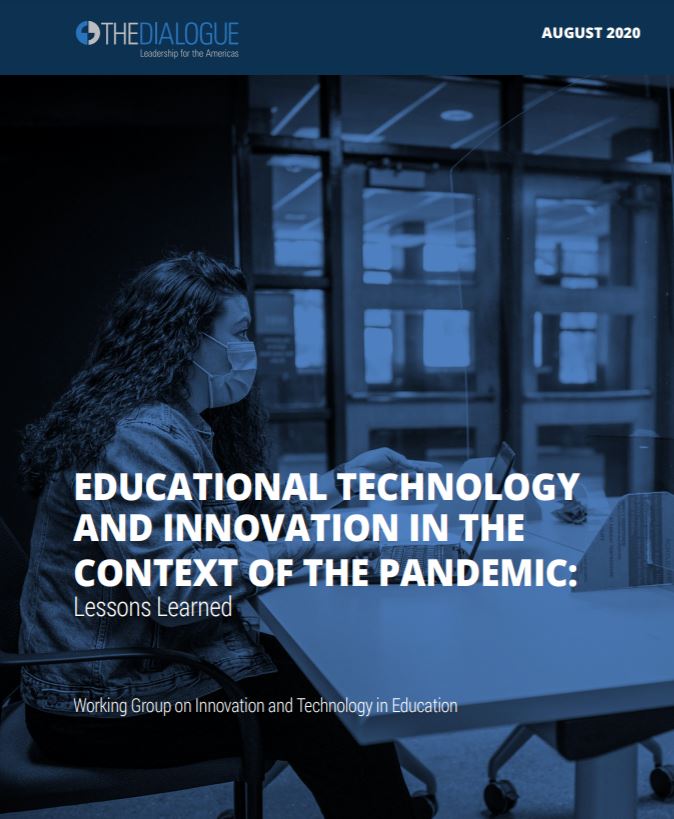This post is also available in: Español


The Covid-19 crisis has forced countries in the region to accelerate technology in education at an unimaginable pace. On June 24, 2020, the Working Group on Technology and Innovation in Education convened to discuss the challenges posed by the closure of educational centers and the strategies and opportunities being developed towards the future of technology development in education. . The report summarizes the region’s experiences and presents recommendations agreed by panel members on how to continue implementing technology in education.
This publication includes a summary of the participation of the Minister of Public Education of Costa Rica and the President of Plan Cebel, and those responsible for educational technology and innovation in the Ministries of Education of Chile, Colombia, and Mexico. , and Peru. Despite contextual differences, most countries agree that a significant gap in access to connectivity is the biggest barrier to maintaining continuity of learning. Even in contexts like Uruguay, where the level of connectivity in the region is very high, countries have developed many innovative strategies to achieve greater security and educational continuity.
headlines:
Lessons learned: From the experiences presented, the group concluded that the effective development of educational technologies requires (a) the use of a multimedia approach and (b) the design or adaptation of integrated digital platforms based on a mediated curriculum that connects actors in the system, including teachers and students. To achieve maximum national coverage, many countries have combined digital, analog and interactive media, including traditional media such as television and radio.
Challenges to overcome: Beyond connectivity and access to the necessary devices, lack of training and support for teachers in information and communication technologies (ICTs), an underdeveloped digital culture, and a lack of inter-ministerial, regional or international cooperation present relevant barriers. region in the future.
Recommendations: To address these obstacles, the report makes several recommendations for the future: strengthening academic leadership, building alliances within and outside ministries, and collaborating regionally and internationally. To address future obstacles, leadership needs to focus on streamlining and adapting existing models to fit the current situation. This will resolve the conflict between short-term emergency responses and long-term agendas. Similarly, such a large-scale educational program cannot be implemented in such a short time without inter-sectoral collaboration of government, collaboration with private companies or spaces for regional and international communication.
Read the report here:

